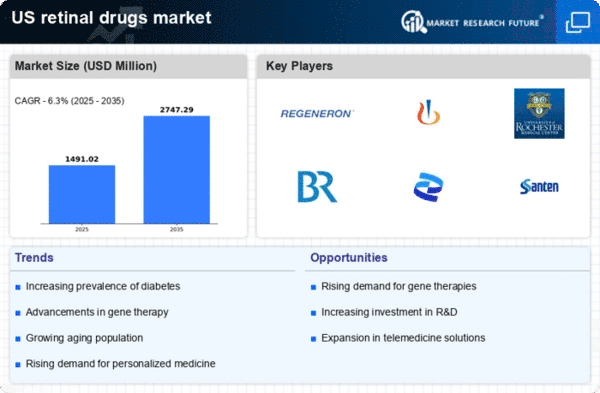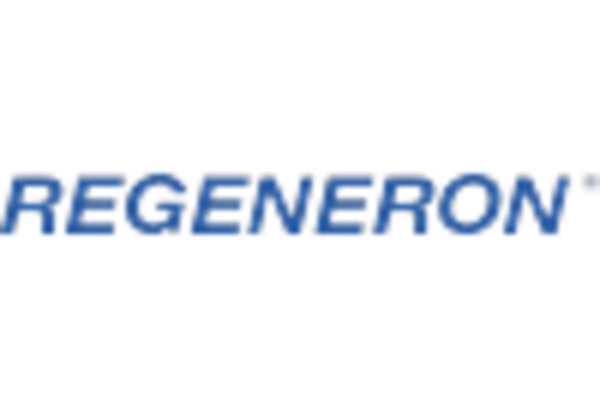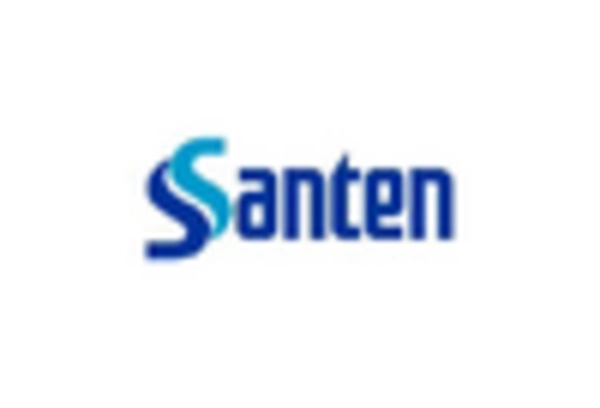Increased Focus on Personalized Medicine
The shift towards personalized medicine is significantly influencing the retinal drugs market. Tailoring treatments to individual patient profiles enhances therapeutic outcomes and minimizes adverse effects. Genetic testing and biomarker identification are becoming integral in developing targeted therapies for retinal diseases. This trend is evident in the growing number of clinical trials focusing on personalized approaches, which are expected to yield innovative drugs in the coming years. The retinal drugs market may see a surge in demand as healthcare providers increasingly adopt personalized treatment plans, aligning with the broader movement towards precision medicine in the US healthcare system.
Technological Advancements in Drug Delivery Systems
Technological advancements in drug delivery systems are transforming the retinal drugs market. Innovations such as sustained-release implants and targeted delivery mechanisms enhance the efficacy of treatments for retinal diseases. For instance, the development of intravitreal injections has improved the bioavailability of drugs, allowing for lower dosages and reduced side effects. The retinal drugs market is projected to benefit from these advancements, as they enable more effective management of chronic conditions like diabetic macular edema. Additionally, the integration of digital health technologies, such as telemedicine and remote monitoring, may facilitate better patient adherence to treatment regimens, further driving market growth.
Rising Healthcare Expenditure and Insurance Coverage
Rising healthcare expenditure in the US is a crucial driver for the retinal drugs market. Increased spending on healthcare services and pharmaceuticals allows for greater access to advanced treatments for retinal diseases. Moreover, the expansion of insurance coverage for retinal therapies enhances patient access to necessary medications. According to the Centers for Medicare & Medicaid Services, national health expenditure is projected to grow at an average rate of 5.4% annually. This financial support is likely to facilitate the adoption of new retinal drugs, thereby propelling market growth. As more patients gain access to effective treatments, the retinal drugs market is expected to expand significantly.
Aging Population and Rising Incidence of Eye Diseases
In the US, the aging population is a primary driver of the retinal drugs market. As individuals age, the prevalence of age-related eye diseases, such as age-related macular degeneration (AMD) and diabetic retinopathy, increases significantly. According to the National Eye Institute, the number of Americans with AMD is projected to reach 3 million by 2025. This demographic shift necessitates the development and availability of effective retinal drugs, thereby expanding the market. Furthermore, the increasing incidence of diabetes, which is a major risk factor for retinal diseases, further compounds the demand for innovative treatments. The retinal drugs market is likely to experience substantial growth as healthcare providers seek to address these escalating health concerns.
Growing Collaborations Between Pharmaceutical Companies and Research Institutions
Collaborations between pharmaceutical companies and research institutions are fostering innovation in the retinal drugs market. These partnerships facilitate the sharing of resources, expertise, and technology, accelerating the development of new therapies. Joint ventures and research initiatives are increasingly common, as companies seek to leverage academic research to bring novel treatments to market. This trend is particularly relevant in the context of retinal diseases, where complex mechanisms require multidisciplinary approaches. The retinal drugs market is likely to benefit from these collaborations, as they enhance the pipeline of potential therapies and improve the overall landscape of treatment options available to patients.
















